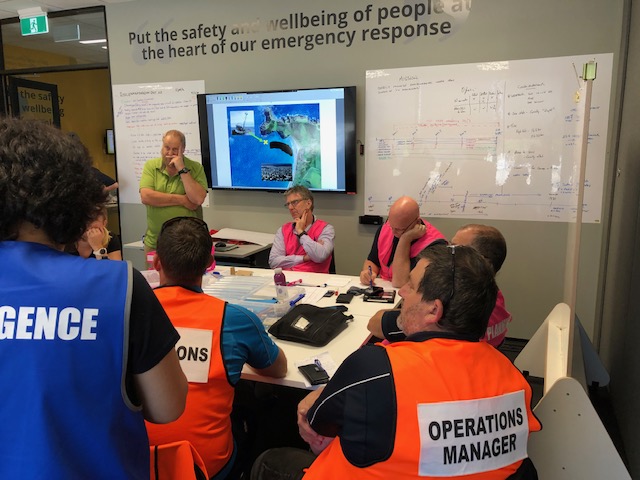Waikato Regional Council news
A fishing vessel has struck rocks and is sinking. It’s leaking diesel and oil-covered dead fish into a marine environment on the Coromandel Peninsula – what do you do?
That’s the theoretical incident Waikato Regional Council staff have responded to in a desktop exercise in Hamilton. It’s the second of two annual exercises required by Maritime New Zealand to check the council’s resources and skills are at the required standard.

The vessel was carrying about 18,000 litres of marine diesel oil and 70 litres of lube oil which, in the scenario, had started discharging into the environment. Some of the 10 tonnes of fish on board at the time escaped through a hole in the hull and started to wash ashore.
“While we hope it never happens in real life, the scenario was a realistic one given we have more than 1200km of coastline,” said the exercise’s regional on-scene commander, Derek Hartley.
“There were some challenges we grappled with in this exercise, such as the remote location of the incident that required some out-of-the-box thinking to enable us to minimise the environmental impact.”
Mr Hartley said every aspect of a marine oil spill response was covered – from intelligence and planning, to communications and logistics, and operations and marine animal welfare.
“This training is essential to bring new staff up to speed with how to respond, as well as refresh the skills of our experienced oil spill response staff.
“Desktop and simulated field exercises occur regularly so if we do have such a spill in our region we know we’re prepared and have the resources and necessary skills to respond swiftly and effectively,” Mr Hartley said.
For the exercise, Waikato Regional Council staff were joined by people from Massey University and the Department of Conservation with expertise in marine animals.

